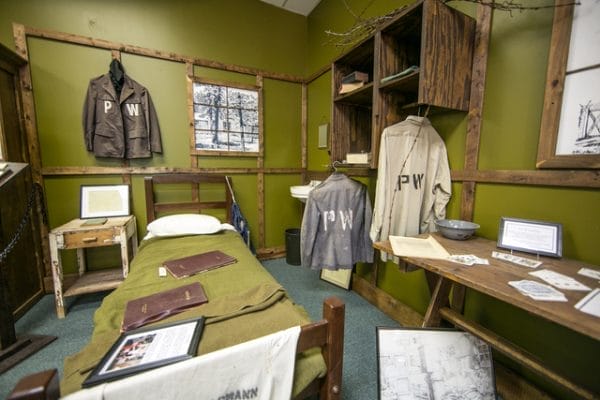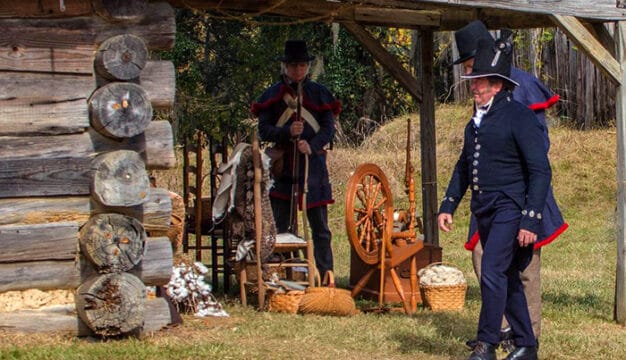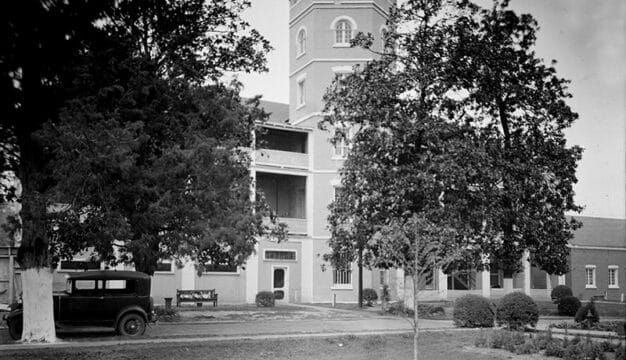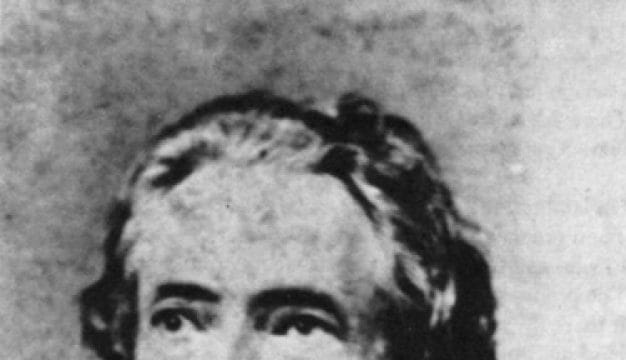Aliceville Museum and Cultural Arts Center
Located in Aliceville, Pickens County, the Aliceville Museum and Cultural Arts Center opened in February 1995. The museum features permanent exhibits on Camp Aliceville, a World War II German prisoner of war (POW) camp that operated from 1942 to 1945; the Aliceville Coca-Cola Bottling Company, which was active from 1910 to 1978; and an extensive collection of U.S. military uniforms and equipment.
 Aliceville Museum and Cultural Arts Center
In 1989, the Aliceville Area Chamber of Commerce invited former German POWs, American military guards, and American civilian employees associated with Camp Aliceville to a Friendship Reunion. As part of the reunion, a display of camp artifacts was assembled at the Aliceville Civic Center. When the artifacts were reassembled in 1993 for a 50th Anniversary Reunion, the need for a permanent home for the collection became apparent.
Aliceville Museum and Cultural Arts Center
In 1989, the Aliceville Area Chamber of Commerce invited former German POWs, American military guards, and American civilian employees associated with Camp Aliceville to a Friendship Reunion. As part of the reunion, a display of camp artifacts was assembled at the Aliceville Civic Center. When the artifacts were reassembled in 1993 for a 50th Anniversary Reunion, the need for a permanent home for the collection became apparent.
During the 1993 reunion, Meridian Coca-Cola Bottling Co. donated two buildings at 104 Broad Street for use as a permanent museum. The buildings had served as the Aliceville Coca-Cola Bottling Co. from 1948 until 1978. The Harry Wheat family donated the adjacent plaza property, a 60×112-foot lot on the corner of Broad Street and State Highways 14 and 17. The museum was formerly incorporated that same year as a not-for-profit corporation and granted 501(c)(3) status. A nine-member self-perpetuating board governs the corporation, with board members serving three-year terms. Operating funds are raised from private donations, with special projects being funded through private and public grants. In February 1995, the main building was opened after completion of a major renovation overseen by the museum’s first executive director, Beth Park.
 Watercolor of Camp Aliceville Guard Tower
In addition to sponsoring a reciprocal trip to Germany in 1994 by about 45 Americans who had some association to Camp Aliceville, the museum has hosted a number of reunions. In 2002, an extensive collection of United States military veteran artifacts opened in the second building. This collection honors veterans of World War I and II, Korea, Vietnam, and the Middle East conflicts. In 2008, a third adjacent building was purchased and now houses collections and exhibits related to the history of the city of Aliceville.
Watercolor of Camp Aliceville Guard Tower
In addition to sponsoring a reciprocal trip to Germany in 1994 by about 45 Americans who had some association to Camp Aliceville, the museum has hosted a number of reunions. In 2002, an extensive collection of United States military veteran artifacts opened in the second building. This collection honors veterans of World War I and II, Korea, Vietnam, and the Middle East conflicts. In 2008, a third adjacent building was purchased and now houses collections and exhibits related to the history of the city of Aliceville.
During an average year, the museum welcomes more than 3,000 visitors, including military history enthusiasts and descendants of former POWs. The museum provides them with an appreciation of German culture, as it was preserved by the POWs, and a renewed appreciation for the humane treatment of prisoners provided during their World War II internment. It also is one of ten World War II venues listed on the History Channel Club’s “Guide to Historic America.” The museum publishes Museum News, a quarterly newsletter of upcoming activities and historical information about the site.
Within the Aliceville community, every effort has been made to build a broad base of community support across age, social, economic, and racial lines. Some supporters make monetary contributions, some contribute artifacts, and others contribute time as tour volunteers to pursue an enhanced understanding of their local past and of the past that they share with former German POWs.



